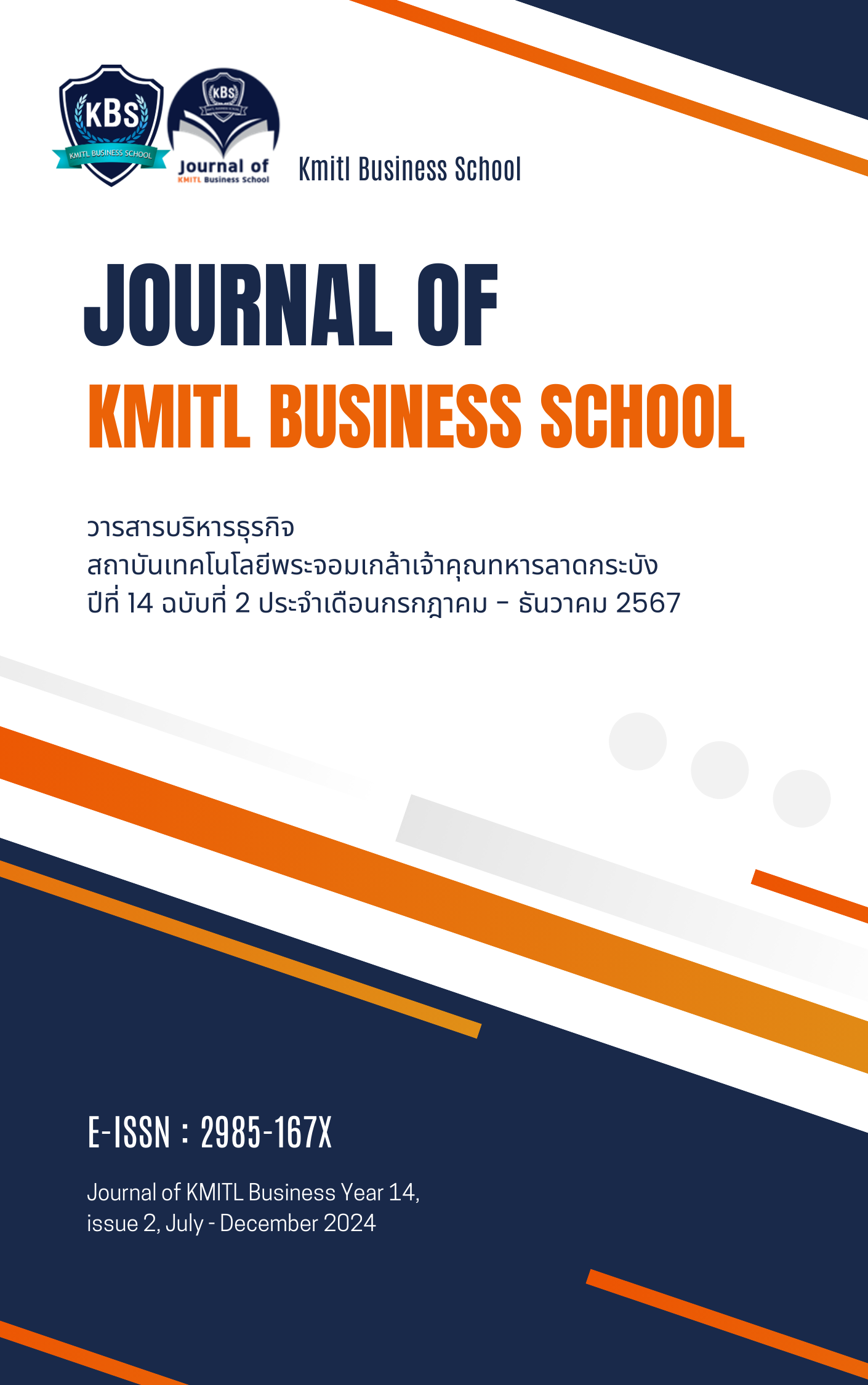A Comparative Study of Project Deliverable Efficiency and Quality in Thai Government Software Development Projects: ISO/IEC 29110 vs. 3-Phase Quality Inspection Method with ISO/IEC 29110
Main Article Content
Abstract
A significant number of government software development projects in Thailand encounter delays in budget disbursement due to contractors failing to deliver projects on time. This issue is partly attributed to inefficient project management, despite the existence of software development process standards disseminated by domestic and international professional organizations. To address this, the researcher conducted a comparative study on the efficiency and quality of project delivery in Thai government software development projects. The study compared the deliverables efficiency and quality of using the ISO/IEC 29110 standard alone against a 3-Phase Quality Inspection Method with ISO/IEC 29110. The study included an analysis of project deliveries from 31 projects conducted between 2011 and 2014, with a total of 97 deliverables, compared to 77 projects conducted between 2015 and 2022, with a total of 241 deliverables. Using z-test for statical analysis to compare the differences between the two methods. The findings revealed efficiency and quality of that project deliverables using the 3-Phase Quality Inspection Method with ISO/IEC 29110 showed significantly difference in delivery performance and quality. Specifically, these projects met their contractual deadlines without incurring penalties, and 99.2% of deliverables were of high quality. This represents a statistically significant improvement over the ISO/IEC 29110 standard alone, with a significance level of .01 (z = -2.930, p = .003) For future research, it is recommended to experiment with the three-phase quality inspection method in conjunction with the ISO/IEC 29110 standard, applying it in automated or semi-automated workflows while clearly identifying the factors affecting efficiency and quality. Comparative studies with other standards, such as CMMI, should also be conducted to understand the advantages and disadvantages of each, allowing for the selection of the most suitable standard. Additionally, further research should be implemented in an automated or semi-automated work process. The research should focus on identifying more factors that impact on efficiency and quality in order to apply the method to broader projects.
Article Details

This work is licensed under a Creative Commons Attribution-NonCommercial-NoDerivatives 4.0 International License.
Journal of KMITL Business School is available both online and in printed version.
**All articles or opinions presented in this issue of the Journal of KMITL Business School reflect the thoughts of their respective authors. This journal serves as an independent platform for a variety of viewpoints. Authors bear full responsibility for the content of their articles.**
**All articles published in this journal are copyrighted by KMITL Business School, King Mongkut's Institute of Technology Ladkrabang. The editorial team permits copying or using articles, but a reference to the journal is required.**
References
สำนักงบประมาณของรัฐสภา. 2567. ข้อมูลการจัดสรรงบประมาณรายจ่ายประจำปี. แหล่งข้อมูล: https://www.parliament.go.th/ewtadmin/ewt/parbudget/ewt_dl_link.php?nid=1080&filename=payment. ค้นเมื่อวันที่ 31 กรกฎาคม 2567.
Taghi Zadeh M. and Kashef R. 2022. The Impact of IT Projects Complexity on Cost Overruns and Schedule Delays. Available: https://arxiv.org/abs/2203.00430. Retrieved 31 July 2024.
Laporte, C. Y., O'Connor, R., and Fanmuy, G. 2013. International systems and software engineering standards for very small entities. CrossTalk: The Journal of Defense Software Engineering, 24(3), 28-33.
Laporte, C. Y., Hébert, C., and Mineau, C. 2014. Development of a social network website using the new ISO/IEC 29110 standard developed specifically for very small entities. Software Quality Professional Journal, 16(4), 4-25.
Siddoo, V., and Wongsai, N. 2017. Factors Influencing the Adoption of ISO/IEC 29110 in Thai Government Projects. International Journal of Information Technologies and Systems Approach, 10(1), 22-44.
Jirapanthong, W. 2019. Experience in Applying of ISO 29110 to Agile Software Development. Journal of Information Science and Technology, 9(1), 63-70.
Garcia, L., Laporte, C. Y., and Arteaga, J. 2014. Implementation and certification of ISO/IEC 29110 in an IT startup in Peru. Software Quality Professional, 17(2), 16-29.
PMI. 2017. A Guide to the Project Management Body of Knowledge (PMBOK Guide). 6th ed, Project Management Institute, Pennsylvania.
Ghosh, B.S., Forrest, D., Dinetta, T., Wolfe, B., and Lambert, D.C. 2012. Enhance PMBOK® by
comparing with P2 M, ICB, PRINCE2, APM and scrum project management standards. PM World Today, 14(1), 1-77.
Fleming, Q. W., and Koppelman, J. M. 2016. Earned value project management. 4th ed, Project Management Institute, Pennsylvania.
Anbari, F. T. 2003. Earned value project management method and extensions. Project Management Journal, 34(4), 12-23.
Vanhoucke, M. 2014. Integrated project management and control: First comes the theory, then the practice. Springer, New York.
West, M. 2004. Real Process Improvement using the CMMI. Auerbach Publications, Taylor and Francis Group, LLC, Florida.
Galvan, S., Mora, M., O’Connor, R.V., Acosta, F., and Alvarez, F. 2015. A compliance analysis of agile methodologies with the ISO/IEC 29110 project management process. Procedia Computer Science, 64, 188-195.
Tremblay, N., Menaceur, J., Poliquin, D., and Laporte, C.Y. 2019. Implementing systems engineering and project management processes in a Canadian company - Overview and results achieved. Journal of Software Engineering and Applications, 13(2), 89-98.


